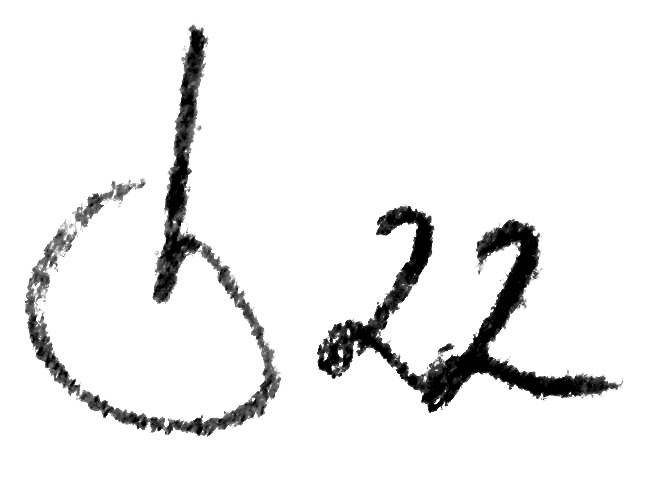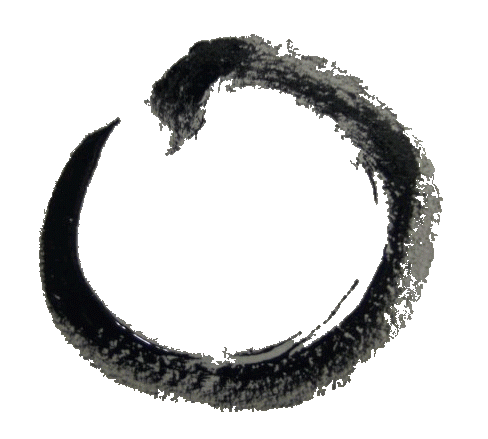|
Tonal and Nagual according to Don Juan in the books of Carlos Castaneda(deutsche Version des Themas) Reading the books of Carlos Castaneda I found the term "Nagual". Castaneda used this term not in the exact historical way (look Wikipedia about Nagual: https://en.wikipedia.org/wiki/Nagual). Over the years, the kind Don Juan, the protagonist in the books of Castaneda, used this term, opened me a path to the world of unlimited wonders an possibilities: the Otherworld. I try to describe this and to refer it to quotations out of Carlos Castaneda: "Tales of Power", which triggered my image of the Nagual. Together with the Wu wei (https://en.wikipedia.org/wiki/Wu_wei), the Non-Doing, the "Stopping the World"(see below), the "Flow", it is the source for "Inner Power" (called by Don Juan "personal power"). This inner power enables to reach the "Nagual", the multiple layers of reality*, the "Acts of Power" (see below). Thus changes and healings become possible. * So from my experiences you find solutions in other layers of the realities, than in the one which includes the problem. To become life-enhancing solutions need "Impeccability" (see below) = modesty = a not-fed-by-thoughts-Ego. And this is where everything comes full circle with the Wu wei, the "Stopping of the World". The Tonal is described by Castaneda as the world we know: "»The tonal is everything we are," he proceeded. "Name it! Anything we have a word for is the tonal. ...«" (p. 123) Compared with the Tonal, the Nagual is an experience beyond the nameable: "» ... The point is to convince the tonal that there are other worlds, ...«" (p.173) "» ... On certain occasions, however, or under certain special circumstances, something in the tonal itself becomes aware that there is more to us. It is like a voice that comes from the depths, the voice of the nagual. ... It is always a jolt because that awareness disrupts the lull. ...«" (p.133) "» ... The affairs of the nagual can be witnessed only with the body, not the reason.«" (p.158) It is described as a power, with a touch of the properties of a soul: "» ... The nagual is there, where power hovers. ...«" (p.127) "» ... The tonal begins at birth and ends at death, but the nagual never ends. The nagual has no limit. I've said that the nagual is where power hovers; that was only a way of alluding to it. By reasons of its effect, perhaps the nagual can be best understood in terms of power. ... «" (p.141) But to discover it, there`s the need of something, what I like to call the "Inner Power": "» ... it is an art, because sorcerers know that only by boosting the tonal can the nagual emerge. See what I mean? That boosting is called personal power.«" (p.161) »You will enter into the nagual and the tonal by the force of your personal power alone. ...«" (p.272) The Nagual withstands the desire to possess, the desire to define. It demands the engaging in the undefined, in ambiguity, in something I call "multiple touch", the engaging in the layer of the soul, the timelessness and the suspension of our normal perception of space: "»When one is dealing with the nagual, one should never look into it directly,« he said. »You were peering at it this morning, and therefore you were sapped. The only way to look at the nagual is as if it were a common affair. One must blink in order to break the fixation. Our eyes are the eyes of the tonal, or perhaps it would be more accurate to say that our eyes have been trained by the tonal, ... «" (p.172) The access to the Nagual is not something sensational, magnificent, but a nearly unremarkable sense, thin as a string, on which I focus my regard-fullness. Adhered to it, or should I say, something in myself is adhering to a very tender feeling in the space around me, that pulls me into the Otherworld: "»... That fiber is the road to the nagual. Or I could also say that the warrior sinks into the nagual through that single fiber. ...«" (p.178) "» ... As everything else which has power in itself or by itself, the right way of walking does not attract attention. You understood it and regarded it, at least for several years, as a curious way of behaving. It didn't dawn on you until very recently that that was the most effective way to stop your internal dialogue.«"(p. 232) It is the location of the infinite possibilities and wonders: "» One can say that the nagual accounts for creativity,« he finally said and looked at me piercingly. »The nagual is the only part of us that can create.«" (p.141) "» ... When the tonal shrinks, extraordinary things are possible. But they are only extraordinary for the tonal. ...«" (p.159) "»The nagual can perform extraordinary things," he said. "Things that do not seem possible, things that are unthinkable for the tonal. ...«" (p.177) And also the place from where changes and solutions come from: "» ... The tonal doesn't know that decisions are in the realm of the nagual. ...«" (p.243) This triggering of infinite possibilities and wonders, was called by Don Juan the "Acts of Power": " ... to accomplish feats that would be unimaginable under ordinary terms. ..." (p.52) "» ... You cannot go back to the womb of your old world, but you cannot act with power either. For you there is only witnessing acts of power and listening to tales, tales of power. ...«" (p. 62) These "Acts of Power" are not controllable, but are depending from your own Impeccability, because the Nagual reacts immediately to your own attitude. Apart from that, this impeccability is inevitable to reach your "Inner Power": "» ... Once he has sunk [into the nagual], the expression of the nagual is a matter of his personal temperament. If the warrior is funny the nagual is funny. If the warrior is morbid the nagual is morbid. If the warrior is mean the nagual is mean. ...«" (p.178) "» ... For a warrior there is time only for his impeccability; everything else drains his power, impeccability replenishes it.«" (p.194) Not surprising, this impeccability is described as humbleness! And so we've come full circle to the "Not-Doing" (wu wei) of Lao Tse. Both need an abandonment of an egocentricity. To be open for Not-Acting, for downsizing of the ego: "» ... The warrior seeks impeccability in his own eyes and calls that humbleness. ...«" (p.15) The "Stopping the World" , a central requirement to reach the Nagual according to Don Juan, seems to be related to the conditions of meditation, ending the circulating thoughts around oneself, coming into a creative flow, the Tao: "»To change our idea of the world is the crux of sorcery,« he said. »And stopping the internal dialogue is the only way to accomplish it. ...«" (p.23) "» ... As everything else which has power in itself or by itself, the right way of walking does not attract attention. You understood it and regarded it, at least for several years, as a curious way of behaving. It didn't dawn on you until very recently that that was the most effective way to stop your internal dialogue.« »How does the right way of walking stop the internal dialogue?« I asked. »Walking in that specific manner saturates the tonal« he said. »It floods it. ...«" (p. 232) The "Stopping the World" is extensively described in the book "Journey to Ixtlan" by Carlos Castaneda. Summarizing the following picture emerges for me: The Nagual requires a disengagement from egocentricity, from the circulating thoughts around myself and the endless confirmation of my world view. Similar to the process of wu wei, the Not-Doing, or the Not-Thinking during a meditation.. The entrance into the Nagual also reminds of the switching into other "layers of being" in the shamanic trance, in a mystical experience or in a visionary epiphany. "Going the path with heart"*, a phrase used by Don Juan in the books of Castaneda, benefits that the answers of the Otherworld to our vibes are life-enhancing. Problem-solutions in this sense, searching them at other layers than at the present conscious has proved for me to be successful. In my process of Wu-wei-painting I see a lot of these "Layers". So it`s not astonishing how often you will find in the image titles the terms "Nagual" or "Otherworld"... * "» ... Does this path have a heart? All paths are the same: they lead nowhere. They are paths going through the bush, or into the bush. In my own life I could say I have traversed long, long paths, but I am not anywhere. My benefactor's question has meaning now. Does this path have a heart? If it does, the path is good; if it doesn't, it is of no use. Both paths lead nowhere; but one has a heart, the other doesn't. One makes for a joyful journey; as long as you follow it, you are one with it. The other will make you curse your life. One makes you strong; the other weakens you.«" from the book of Carlos Castaneda "The Teachings of Don Juan: A Yaqui Way of Knowledge." Entry of Monday, 28 January 1963 Literature to further reading: Castaneda, Carlos University of California Press, 1968
Castaneda, Carlos Journey to Ixtlan Simon & Schuster, New York, 1972
Castaneda, Carlos Tales
of Power
Lao-Tse Tao Tê King übersetzt von Victor von Strauß (1870) Zürich, 1992, 9.Aufl., Manesse
Laotse Tao te king übersetzt von Richard Wilhelm (1910) München, 2000, Diedrichs, 13.Aufl.
Annotations to the Otherworld Annotations to the "Ebenenbilder" (layer-paintings) zur Werksübersicht (images-overview) hier klicken
|
A t e l i e r b 2 2 i m a g e s - o v e r v i e w L e b e n s l a u f u n d W e r k z y k l e n B ü c h e r - books f l u x u s - p r o j e k t e Impressum, Datenschutz und Kontakt back to: www.b22.de |

